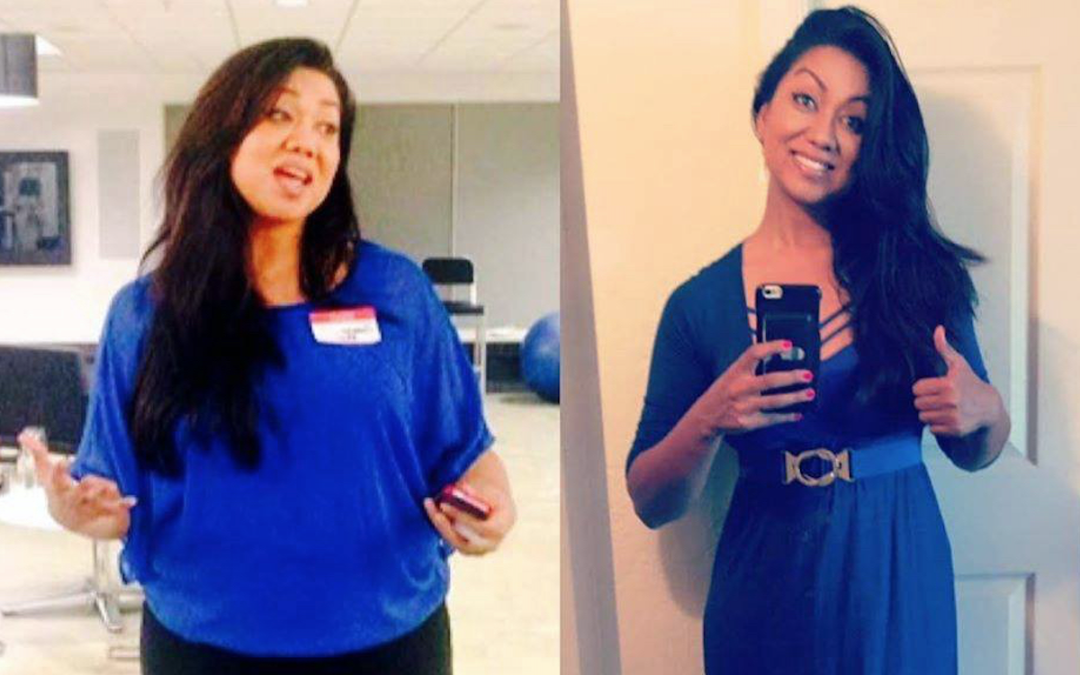Have you ever considered the benefits of fasting, but feared the challenges? Here in Silicon Valley, Sumaya Kazi is the poster child for intermittent fasting, a new trend in weight control that’s popular among the tech set. Intermittent fasting involves abstaining from food anywhere from sixteen hours to several days – with “normal” eating resumed in between. Enthusiasts say the health benefits extend far beyond weight loss. The BBC’s Health Check team sent Alison van Diggelen to explore the evidence.
“The effects were almost immediate for me: the weight started melting off really early on… I lost about 50 lbs over the first 7 1/2 months.” Sumaya Kazi
Listen to my report at the BBC’s Health Check (starts @9:36) It aired on the 18th and 22nd of July on the BBC World Service and was picked up by The Science Hour on July 21st, 2018.
Here’s a transcript of my report (edited for length and clarity):
Alison van Diggelen: When 36-year old Sumaya Kazi launched her tech startup in 2010, the long hours, constant traveling and too much eating-out made her pack on the pounds. At over 200 lbs (90 kg), she tried to lose weight by exercising compulsively, trying weight loss groups, and doing weekly meal planning.
Sumaya Kazi: None of them stuck with me or showed me enough progress to stick with it. None of them felt like a lifestyle. When I found IF, it absolutely did for me.
Alison van Diggelen: For Kazi, fasting offered quick results:
Sumaya Kazi: The effects were almost immediate for me: the weight started melting off really early on, to my surprise, because I wasn’t working out at the time. I lost about 50 lbs over the first 7 1/2 months.
Alison van Diggelen: It was a BBC television documentary about fasting that convinced her to give it a try. Research from Johns Hopkins University in animals and humans suggested that fasting could enhance brain function and might even help protect against cancer, strokes and degenerative diseases like Alzheimer’s.
Fasting advocates claim it can reduce weight, improve blood sugar, can “re-set” the metabolism, boosts the immune system and can even slow down aging. So what was Kazi’s personal experience?
Sumaya Kazi: I no longer had issues with high blood pressure. I was pre-diabetic early on and no longer have those issues. I no longer have issues of sleep apnea. Also I have more energy, I’m more productive, I feel more focused, I feel food tastes better.
Alison van Diggelen: So what does it involve? Kazi points out that the most popular form of intermittent fasting – or IF – is called “16-8.” That’s 16 hours of fasting followed by 8 hours of eating. Simply cutting out breakfast and eating an early dinner can accomplish that.
But Kazi prefers “alternate day” fasting. For her, Monday, Wednesday and Friday are fast days. The other days she calls “feast days.” This being Silicon Valley, she frames it in binary terms:
Sumaya Kazi: It’s almost like an on-off switch: I know when I should be eating, I know when I should be feasting. It keeps it simple for me. IF isn’t a magic pill. It works when you put it to work. It’s not a diet, it’s not about WHAT you eat, it’s about WHEN you eat. …
Alison van Diggelen: But how does it compare to other weight loss regimens? And are its claims backed up by research?
A professor of nutrition at the University of Illinois at Chicago recently completed a fasting study with 28 obese patients and found that – like traditional diets – the 16-8 fast could offer an effective method for losing weight – but cautioned that longer-term, large-scale controlled trials are needed.

Santa Clara University Prof Heidi Lidtke, Nutritionist explains fasting for the BBC. Photo by Alison van Diggelen, Fresh Dialogues
I went to a coffee shop in a local bookstore to chat with a nutrition expert, Professor Heidi Lidtke.
Alison van Diggelen: Heidi and I assess the vast array of diet books on the bookstore walls. It’s quite overwhelming.
Heidi Lidtke: What I tell my students is: we should eat real food, mostly plants, not too much and we should enjoy what we eat.
Heidi is an adjunct professor at Santa Clara University in Silicon Valley.
Heidi Lidtke: The most exciting research has been done in yeast and it shows that cancer in yeast can be totally stopped…the yeast cells are healthy and the cancer cells die after chemo and fasting. But it’s yeast and humans are NOT yeast. I don’t know how we can translate single cell organisms (yeast) to multi cell organisms – humans.
Alison van Diggelen: So it would be a stretch to say IF can cure cancer?
Heidi Lidtke: There are a lot of studies in rats and mice…It has cured and totally reversed diabetes in rats, not humans…But it’s not totally transferable, right?
Alison van Diggelen: What about studies on humans and diabetes?
Heidi Lidtke: There have been some studies on some of precursors, sugar levels and insulin levels – those can go down in the first couple of months of IF. But all human studies have been small – 35 people….it’s hard to say 35 Turkish people are the same as 35 Americans… It’s hard to extrapolate from the research.
Alison van Diggelen: What would be required to convince scientists, to show this causal connection?
Heidi Lidtke: There would need to be multiple studies in multiple population groups…We’re in the process of doing that, but it takes time.
Alison van Diggelen: But Lidtke remains skeptical, especially about the cancer claims which could influence people when they’re feeling vulnerable.
Heidi Lidtke: My initial reaction? Interesting…I have concerns for some people at risk…people are forgoing scientifically validated treatment…that people are going to fast instead of getting chemo…I have concerns.
Alison van Diggelen: Lidtke also points out that fasting is not for everyone – and could be dangerous for those with eating disorders (like anorexia or bulimia). And she recommends discussing it with a doctor before trying it.
Heidi Lidtke: For someone who’s got disordered eating it just feeds into that and gives them a framework.
Alison van Diggelen: So how does IF compare to other diets?
Heidi Lidtke: The research on IF is really slim and then research comparisons are even slimmer. It’s hard to do comparisons. The diet that works is the one you stick to. If you’re able to stick and keep the weight off, then that’s the one that works.
Alison van Diggelen: Lidtke emphasizes that there’s no diet that works for everyone and scientific research is limited, but she does single out the “DASH” diet which has been studied by the National Institutes of Health and is recommended by the US Dept of Agriculture in its nutrition guidelines. It’s rich in fruits, vegetables, whole grains, and low-fat dairy foods; and limited in sweetened foods and drinks, red meat, and fats and has been proven to reduce blood pressure and hypertension, even without weight loss.
So, after hearing all the caveats, for anyone still keen to try fasting, Sumaya Kazi has three top tips….
Sumaya Kazi:
- Look at IF as an experiment – It’s really better to approach it as something that you’re trying on for size…Feel free to experiment with the different schedules.
- Give it some time. The first couple of days, you’ll likely be hangry, mad about starting. It’s about getting into the habit. Give it a fighting chance, push through and understand why you’re feeling what you’re feeling. After 2 weeks it’s going to start feeling like something you can actually do.
- Sparkling water will be your best friend…carbonated water can help you feel full on fast days.
Alison van Diggelen: A small study in the US recently showed that fasting caused some people to experience lower blood pressure and improvements in processing sugar. But downsides like headaches, drowsiness and increased thirst were also reported. The bottom line is this: Despite Sumaya Kazi’s impressive transformation, to say that intermittent fasting is an enduring answer for everyone’s weight loss and general health: larger, longer-term studies are needed.
Find out more:
Read Sumaya Kazi’s story on Medium
Check out other BBC reports




